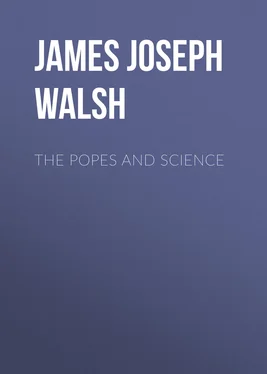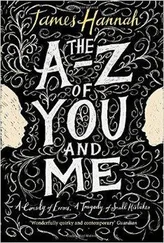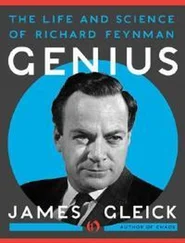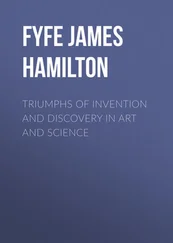James Walsh - The Popes and Science
Здесь есть возможность читать онлайн «James Walsh - The Popes and Science» — ознакомительный отрывок электронной книги совершенно бесплатно, а после прочтения отрывка купить полную версию. В некоторых случаях можно слушать аудио, скачать через торрент в формате fb2 и присутствует краткое содержание. Жанр: foreign_prose, foreign_religion, foreign_antique, на английском языке. Описание произведения, (предисловие) а так же отзывы посетителей доступны на портале библиотеки ЛибКат.
- Название:The Popes and Science
- Автор:
- Жанр:
- Год:неизвестен
- ISBN:нет данных
- Рейтинг книги:4 / 5. Голосов: 1
-
Избранное:Добавить в избранное
- Отзывы:
-
Ваша оценка:
- 80
- 1
- 2
- 3
- 4
- 5
The Popes and Science: краткое содержание, описание и аннотация
Предлагаем к чтению аннотацию, описание, краткое содержание или предисловие (зависит от того, что написал сам автор книги «The Popes and Science»). Если вы не нашли необходимую информацию о книге — напишите в комментариях, мы постараемся отыскать её.
The Popes and Science — читать онлайн ознакомительный отрывок
Ниже представлен текст книги, разбитый по страницам. Система сохранения места последней прочитанной страницы, позволяет с удобством читать онлайн бесплатно книгу «The Popes and Science», без необходимости каждый раз заново искать на чём Вы остановились. Поставьте закладку, и сможете в любой момент перейти на страницу, на которой закончили чтение.
Интервал:
Закладка:
At the death of Vesalius the Golden Age of the development of anatomy was not at its close, but was just beginning. Eustachius, Caesalpinus, Harvey and Malpighi were during the course of the next century to make anatomy a science in the strict sense of that word. After Vesalius's time the history of anatomy in Italy centers around the Papal Medical School to a great extent. During Vesalius's lifetime his greatest rival became the professor of anatomy there. The anatomical school of Bologna, in connection with that city, became an important focus of anatomical investigation. At this time Bologna was a Papal city. It was in the dominions of the Popes, then, as we shall see, that anatomy was carried on with the most success and with the most ardor. Far from there being any opposition to the development of the science, every encouragement was given to it, and it was the patronage of the Popes and of the higher ecclesiastics that to a great degree made possible the glorious evolution of the science during the next century.
SUPPOSED PAPAL PROHIBITION OF CHEMISTRY
A false impression, exactly corresponding to that with regard to anatomy, has been created and fostered by just the same class of writers as exploited the anatomy question, with reference to the attitude of the Popes and the Church of the Middle Ages toward the study of chemistry. This is founded on a similar misrepresentation of a Papal document. When it was pointed out that this Papal document, like Pope Boniface's bull, had no such purport as was suggested, just the same subterfuge as with regard to anatomy was indulged in. If the Papal document did not forbid chemistry directly, as was said, at least it was so misinterpreted, and chemistry failed to develop because of the supposed Papal opposition. These expressions were used, in spite of the fact that, just as in the case of anatomy, it is not hard to trace the rise and development of chemistry, or its predecessor, alchemy, during the years when it is supposed to be in abeyance. Certainly there was no interruption of the progress of chemical science at the date of the supposed Papal prohibition, nor at any other time, as a consequence of Church opposition.
The similarity of these two history lies is so striking as to indicate that they had their birth in the same desire to discredit the Popes at all cost, and to make out a case of opposition on the part of ecclesiastical authorities to scientific development, whether it actually existed or not. The surprise is, however, that the same form of invention should have been used in both cases. One might reasonably have expected that the ingenuity of writers would have enabled them to find another basis for the story on the second occasion. Still more might it have been expected that when the error with regard to the tenor of the Papal document was pointed out to them, a different form of response would be made in the latter instance. The whole subject indicates a dearth of originality that would be amusing if it were on a less serious matter, and does very little credit either to those who are responsible for the first draft of the story, but still less to those who have swallowed it so readily and given it currency.
The story of the Supposed Papal Prohibition of Chemistry was characteristically told by William J. Cruikshank, M. D., of Brooklyn, New York, in an address bearing the title, "Some Relations of the Church and Scientific Progress," published in The Medical Library and Historical Journal of Brooklyn for July, 1905. The writer called emphatic attention to the fact that chemistry, during the Middle Ages, had come under the particular ban of the ecclesiastical authorities, who effectually prevented its cultivation or development. "The chemist," Dr. Cruikshank says, "was called a miscreant, a sorcerer, and was feared because of his supposed partnership with the devil. He was denounced by Pope and priest and was persecuted to the full extent of Papal power. Pope John XXII. was especially energetic in this direction, and in the year 1317 A.D., issued a bull calling on all rulers, secular and ecclesiastical, to hunt down the miscreants who were afflicting the faithful, and he thereupon increased the power of the Inquisition in various parts of Europe for this purpose."
At the suggestion of the editor of the Medical Library and Historical Journal, I answered these assertions of Dr. Cruikshank, pointing out that the Papal document which he mentioned had no such purport as he declared, and that the history of chemistry or alchemy presented no such break as his assertions would demand. Dr. Cruikshank immediately appealed by letter to his authority on the subject, whose words, in the History of the Warfare of Theology with Science in Christendom, though I did not realize it at the time, he had repeated almost literally. In his chapter on From Magic to Chemistry and Physics, Dr. Andrew D. White says: "In 1317, Pope John XXII. issued his bull Spondent pariter, levelled at the alchemists, but really dealing a terrible blow at the beginning of chemical science. He therefore called on all rulers, secular and ecclesiastical, to hunt down the miscreants who thus afflicted the faithful, and he especially increased the power of inquisitors in various parts of Europe for this purpose." It will be seen that, as I have said, Dr. Cruikshank's words are almost a verbatim quotation from this paragraph. It is true that he has strengthened the expressions quite a little and added some trimmings of his own, still I suppose his expressions could be justified if those of President White had a foundation in fact. A little comparison of the two sets of phrases will show how a history lie grows as it passes from pen to pen. Crescit eundo --like rumor, it increases in size as it goes.
In defense of this passage in the History of the Warfare of Science with Theology in Christendom, Dr. White wrote a letter of reply to Dr. Cruikshank, which was incorporated into Dr. Cruikshank's response to my article in the Medical Library and Historical Journal. I presume that this was done with Dr. White's permission. In this letter he admitted that Pope John's decretal had no such significance as he originally claimed for it, but he still maintained his previous opinion, that this decretal, like Boniface's bull for anatomy, had actually prevented, or at least greatly hampered the study of chemistry. To this I replied with a brief story of chemistry in the fourteenth century, and though that article was published more than a year ago, no admission has been made and nothing further has been published on the subject. The material of the reply to Dr. White, to which as yet there has been no answer, is comprised in this chapter.
As I have already hinted, the most surprising thing about this citation of a Papal decree forbidding chemistry, is that it proves on investigation to be founded on just exactly the same sort of misinterpretation of a Papal document as happened with regard to anatomy. The bull of Pope Boniface VIII. forbidding the boiling of bodies and their dismemberment for burial in distant lands, did nothing to hinder the progress of anatomy, had no reference to any preparations required for dissection, and was not misinterpreted in any such sense until the nineteenth century, and then only for the purpose of discrediting the Popes and their relations to science. Pope Boniface's bull, far from being harmful in any way to education or to the people, was really beneficial, and constituted an excellent sanitary regulation which doubtless prevented, on a number of occasions, the carriage of disease from place to place.
The decree of Pope John XXII., which has been falsely claimed to forbid chemistry, was another example of Papal care for Christendom, and not at all the obscurantist document it has been so loudly proclaimed. Pope John learned how much imposition was being practiced on the people by certain so-called alchemists who claimed to be able to make silver and gold out of baser metals. In order to prevent this, within a year after his elevation to the pontificate he issued not a bull, but a very different form of document–a decretal–forbidding any "alchemies" of this kind. The punishment to be inflicted, however, instead of being the penalty of death, as Dr. Cruikshank, Dr. White and many others have declared, or at least let it be understood from their mode of expression, was that the person convicted of pretending to make gold and silver and selling it to other people, should pay into the public treasury an amount equal to the supposed amount of gold and silver that he had made. The money thus paid into the public treasury was to be given to the poor.
Читать дальшеИнтервал:
Закладка:
Похожие книги на «The Popes and Science»
Представляем Вашему вниманию похожие книги на «The Popes and Science» списком для выбора. Мы отобрали схожую по названию и смыслу литературу в надежде предоставить читателям больше вариантов отыскать новые, интересные, ещё непрочитанные произведения.
Обсуждение, отзывы о книге «The Popes and Science» и просто собственные мнения читателей. Оставьте ваши комментарии, напишите, что Вы думаете о произведении, его смысле или главных героях. Укажите что конкретно понравилось, а что нет, и почему Вы так считаете.












